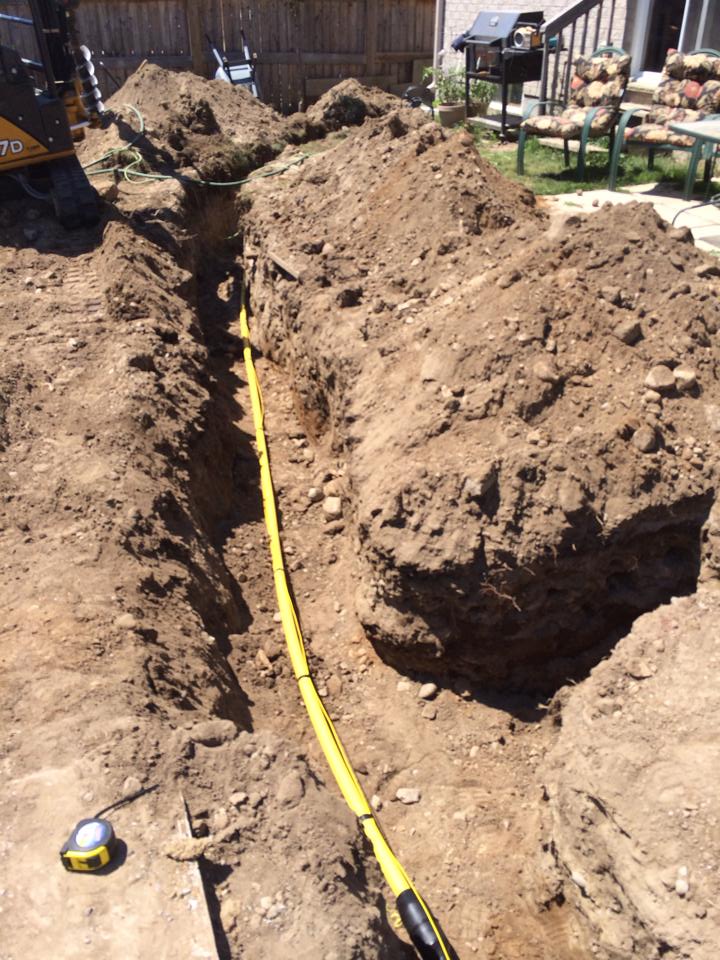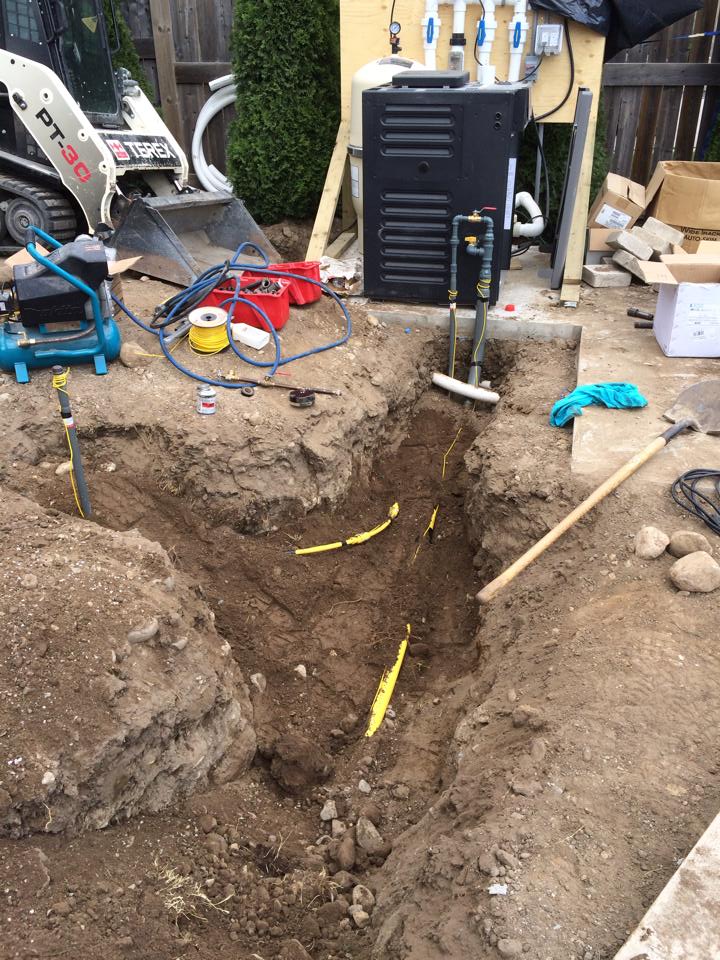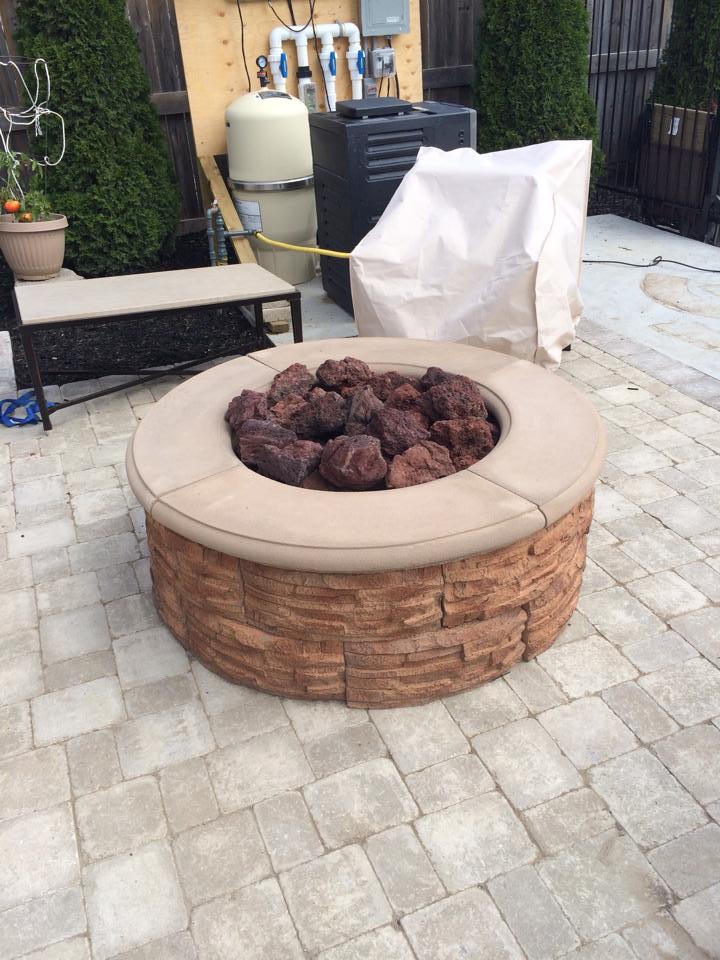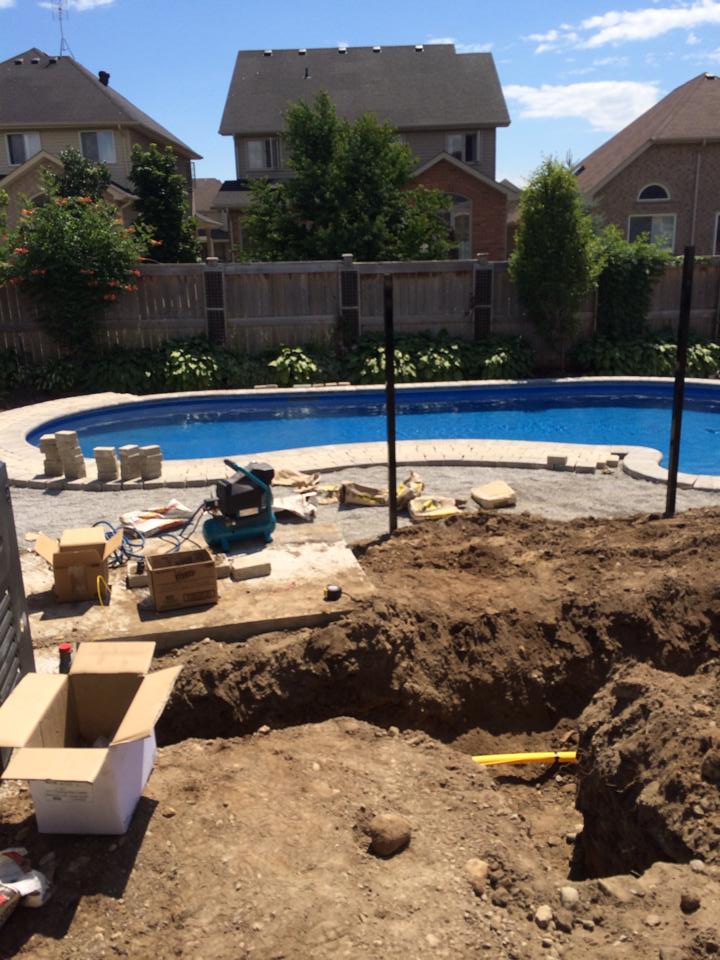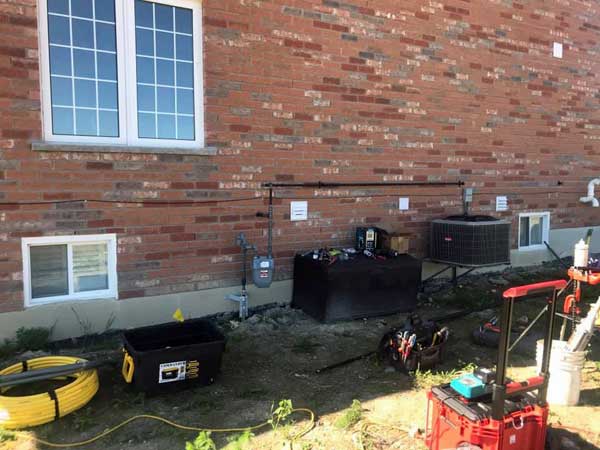Gas Line Installations for
Gas BBQs, Ranges, Dryers, and Pool Heaters
Need a gas line for an outdoor fire-pit or pool heater ? We can do that for you.
Here are some pics of a pool heater & outdoor fire-pit gas line rough-in & finished product .
Gas line installations are essential for a variety of household appliances, including gas BBQs, ranges, dryers, and pool heaters. These installations require careful planning, proper materials, and professional expertise to ensure safety and functionality.
Advantages of Gas Appliances
- Efficiency and Cost-Effectiveness
Gas appliances offer efficiency and cost-effectiveness. Natural gas and propane are typically less expensive than electricity, resulting in lower operating costs. Additionally, gas appliances tend to heat up faster and provide consistent performance, making them a preferred choice for many homeowners. - Reliability
Gas appliances continue to operate during power outages, providing a reliable source of heat and cooking capabilities when electricity is unavailable. This is particularly beneficial for regions prone to electrical disruptions. - Performance
Gas appliances often offer superior performance compared to their electric counterparts. Moreover, they can provide greater efficiency and cost savings over time. Chefs and cooking enthusiasts highly value gas ranges for their precise temperature control and instant heat.Gas dryers dry clothes faster and more evenly, and gas pool heaters quickly warm up the water, extending the swimming season. - Environmental Benefits
Natural gas is a cleaner-burning fuel compared to coal and oil, producing fewer pollutants and greenhouse gases. By using gas appliances, homeowners can reduce their environmental impact and contribute to a cleaner environment.
Gas Line Installation Process
- Assessment and Planning
The first step in any gas line installation is a thorough assessment and planning phase. This involves evaluating the specific needs of the appliance, determining the optimal route for the gas line, and obtaining any necessary permits. A professional technician will inspect the property to identify the best location for the gas line and ensure compliance with local building codes and regulations. - Selecting the Right Materials
Choosing the right materials for gas line installations is crucial for safety and durability. Common materials include:
- Black iron pipe: Durable and widely used for gas lines.
- Copper tubing: Flexible and resistant to corrosion, suitable for certain applications.
- Corrugated stainless steel tubing (CSST): Flexible and easy to install, often used in newer installations.
The choice of material depends on factors such as the type of gas (natural gas or propane), local building codes, and the specific requirements of the appliance.
- Installing the Gas Line
The installation process involves several key steps:
- Shutting off the gas supply: Turn off the gas supply before starting any work to prevent leaks and ensure safety.
- Cutting and threading pipes: For black iron pipe installations, cut the pipes to the required length and thread them to allow for secure connections.
- Running the gas line: Run the gas line from the main gas supply to the appliance location. This may involve drilling holes through walls or floors and securing the pipe or tubing along the route.
- Connecting the gas line: Connect the gas line to the appliance using appropriate fittings and connectors. Tighten all connections and check for leaks with a gas leak detector or soapy water solution.
- Testing the system: After completing the installation, turn the gas supply back on and test the system for leaks and proper operation. Address any detected leaks immediately to ensure safety.
- Final Inspections and Approvals
Once you complete the gas line installation, a qualified professional or local building authority must conduct a final inspection. Therefore, this step ensures the installation meets all safety standards and regulations. This inspection ensures that the installation meets all safety standards and regulations.. After approval, you can connect and operate the appliance, and the gas line will be ready for use.
Conclusion
Gas line installations offer numerous advantages, including reliable and efficient energy delivery for heating, cooking, and hot water.
They provide a consistent and cost-effective energy source compared to electricity, often leading to lower utility bills.
Gas lines also support advanced appliances and systems, enhancing overall home comfort and performance.
Additionally, modern gas line installations are designed with safety and environmental considerations in mind, incorporating advanced technology and strict regulations to minimize risks.
Overall, investing in a well-installed gas line system can improve both the functionality and value of a property.

